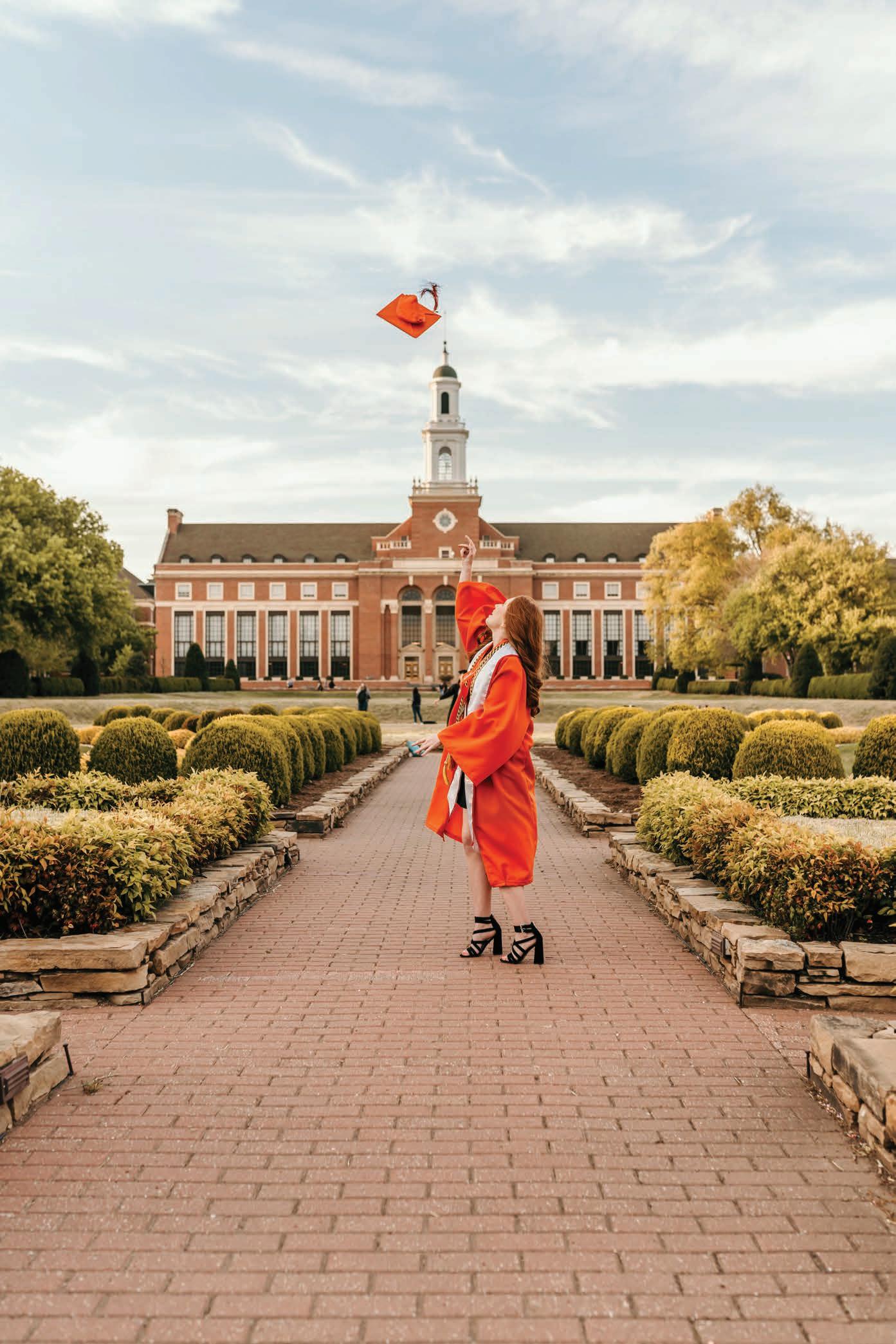
3 minute read
Agriculture is...
Although people often consider agriculture to be crop production and animal husbandry, academic opportunities can span far beyond traditional agriculture.
When students play a role in the proper use of natural resources, whether it be through food safety, supply chain management or landscape architecture, they are involved in agriculture, said Cynda Clary, associate dean of academic programs in the Oklahoma State University Ferguson College of Agriculture.
Advertisement
“The diversity of our students reflects the diversity of our disciplines,” Clary said.
Among the college’s nine academic departments and three multidisciplinary academic programs, individuals may differ in small ways, but are connected through one common passion, Clary said.
“If I look at the students we have coming into our programs and the faculty and staff who work in this diverse organization in terms of disciplines, interests and skill sets, I see they all have a commitment to making the world a stronger, better and more sustainable place,” Clary said.
Sustainability is a main concentration of the biosystems and agricultural engineering department, said Danielle Bellmer, a professor who works in the Robert M. Kerr Food & Agricultural Products Center.
“There really is a broad range of topics in this department, but they all have the same end goal,” Bellmer said, “which is to make agriculture more sustainable and more profitable.”
Academic courses in this discipline focus on food and bioprocess engineering, machine systems or environmental and natural resources, Bellmer said.
“One question we focus on is, ‘How can we optimally convert these agricultural resources into products that is that are stable, safe and cost effective?” Bellmer said.
Kim Anderson, a professor emeritus of agricultural economics and an extension economist for the Division of Agricultural Sciences and Natural Resources, said agriculture can be quite simple.
“Agriculture is essentially marketing,”Anderson said. “What are you going to produce on that land? How much money is it going to take to produce it? What management skills do you have to produce it? How much money will it generate, and what will the consumer pay for it? That’s agriculture.”
Anderson is in his 31st year of teaching for OSU. In that time, he said neither agriculture or the quality of information provided by DASNR faculty and staff have changed in his eyes.
“The one thing that hasn’t changed, is that the division is an unbiased source of information,” Anderson said. “Therein lies our value.”
While changes have occurred in government policy and delivery of information, agriculture remains constant, Anderson said.
Lou Anella, a professor of horticulture and landscape architecture, said he found his passion for agriculture by taking a new approach. Growing up, Anella did not consider any agricultural fields of study as possible careers.
“I had to move to the city to realize one could study horticulture or agriculture,” Anella said. “I then realized I could do what I really loved in an urban environment.”
Being in a rural setting is not a requirement to be involved in agriculture, Clary said.
“Not everything agriculture related is tied to food production,” Clary said. “The enhancement and protection of our natural resources is also a critical part of what we do in the college.”
Regardless of the way individuals are involved in agriculture, one essential skill the college offers is sharing information, said Dwayne Cartmell, assistant director of the Master of International Agriculture Program and agricultural communications professor.
“Being able to share content with the world about food, agriculture and the environment is a critical skill set,” Cartmell said. “Agricultural communicators bring that skill set to the table.”
Giving the public written and visual context about things such as new ideas, technologies and tools that may affect them in the future regarding food security and environmental issues is an important job, he added.
While different opportunities exist to be involved in the academic study of agriculture, all point to a similar rationale, Clary said.
“We may feel strongly about our college, our industry or the different things we do, but we do it based on scientific knowledge,” Clary said. “That is what’s going to provide sustainability for the future.”
With sustainability in mind among the diverse collection of departments, professors and students in the Ferguson College of Agriculture, the tie that binds seems stronger than ever, she added.
“There are commonalities among us that make us strong,” Clary said. “There are also differences among us, and that makes us stronger.”
LYNDSEY HARVEY

Story by Lyndsey Harvey of Rogers County Oklahoma










